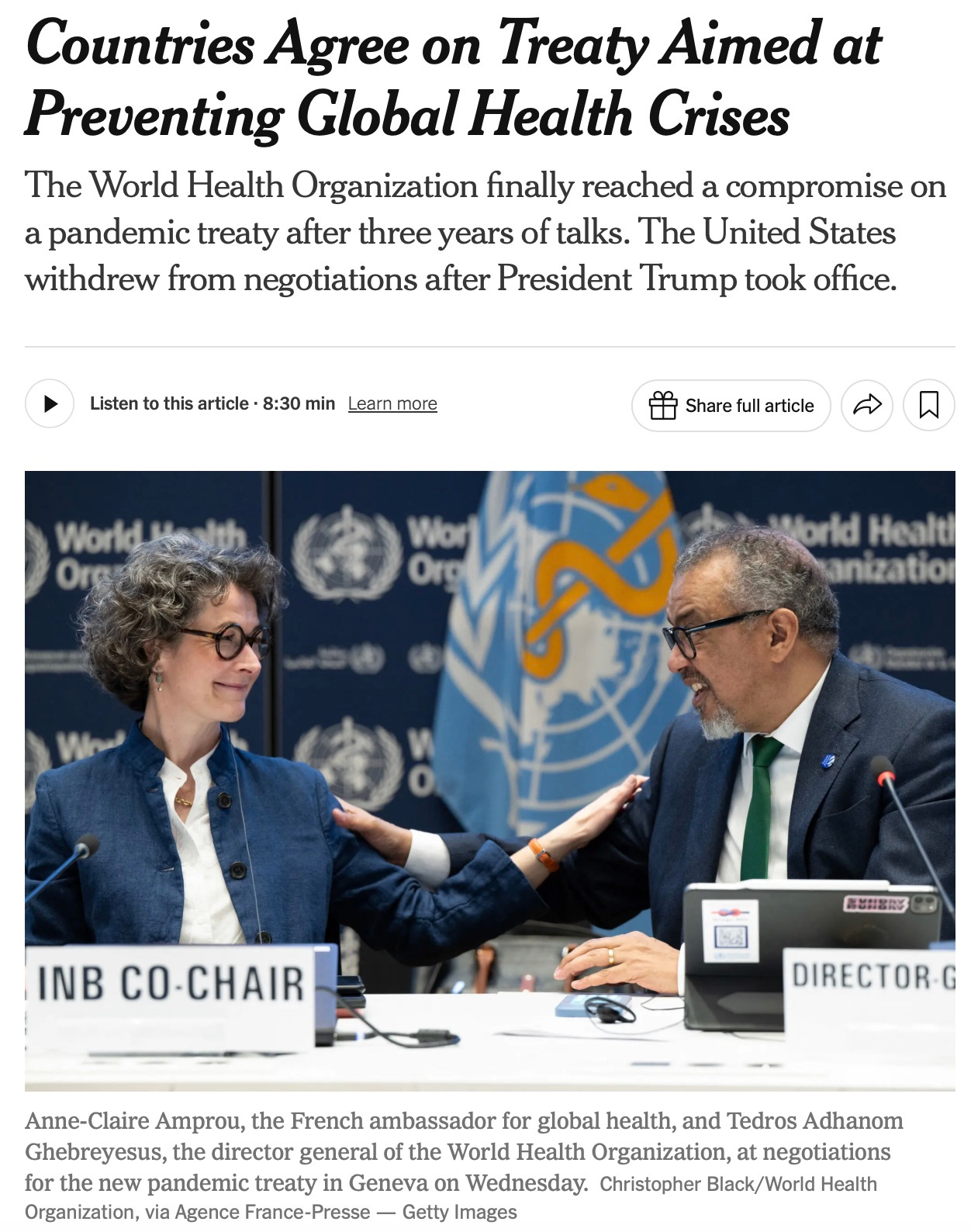NYT take on the pandemic treaty: better than nothing
I will go over what is "legally binding" in another post. Not much.

How sweet it is!
After three years of contentious negotiations, the member nations of the World Health Organization have agreed on a draft of a “pandemic treaty” designed to help the global community better prevent and respond to health crises.
The agreement is aimed at averting the fractious, faltering response to the Covid-19 pandemic, which left many poor nations with limited access to vaccines and treatments. It would oblige wealthy nations to share key information on pathogens, and technology for interventions such as vaccines, with the rest of the world.
That last sentence is false. It does not oblige wealthy nations to do anything—this is to be decided later, between nations.—Nass
The member states are expected to adopt the treaty, which will be legally binding, next month. The United States, which stopped participating in negotiations after President Trump announced plans to withdraw from the W.H.O., is not expected to ratify the treaty.
The draft treaty is more limited in scope than the vision the W.H.O. first proposed during the throes of the Covid pandemic, but it is significant as the first major multilateral agreement in a world where the United States is no longer the unquestioned anchor.
“It shows that with or without the U.S., the world can pull together for global health, and a recognition that pandemics require global solidarity,” said Nina Schwalbe, a global health consultant who has held leadership roles in U.S. and international organizations and who followed the negotiations closely. “They pushed past their red lines and they got to agreement. That’s no easy feat for 191 states. And there’s a lot in there. It’s maybe not as strong as we wanted on many issues, but there’s lots to build on.”
To reach the final deal, Europe accepted concessions on that language, while African countries gave Europe more of what it wanted on agricultural and wildlife surveillance.
The draft treaty includes a provision guaranteeing that countries that share pathogen samples and genetic sequences will get access to any diagnostics, vaccines or treatments that are developed as a result. The W.H.O. would receive a minimum of 10 percent of manufacturers’ products as they are made, as a donation, and up to another 10 percent at “affordable prices,” to distribute to the world’s poorest countries. (These percentages never got more generous during the negotiations—Nass)
The draft treaty does not have any enforcement mechanism, which means that in a situation like the fierce competition for Covid vaccines, there would be no way to ensure countries adhere to the terms to which they had agreed.
The lack of a dedicated source of funding in the treaty to help countries pay for this work emerged as an early sticking point, Ms. Finch said. But the final language says nations will embark upon this work “subject to the availability of resources.”
The agreement is “very far from what we were dreaming of” when negotiations began, “that we will have joint, multilateral coordination and that national selfishness will be overcome,” Dr. Ventura said. But, she added, it nevertheless has huge symbolic value.
“It is an indispensable political gesture: 191 countries that are affirming the possibility of building multilateralism without depending on the United States,” she said. “The agreement is less important than the fact that the negotiations did not fail.”